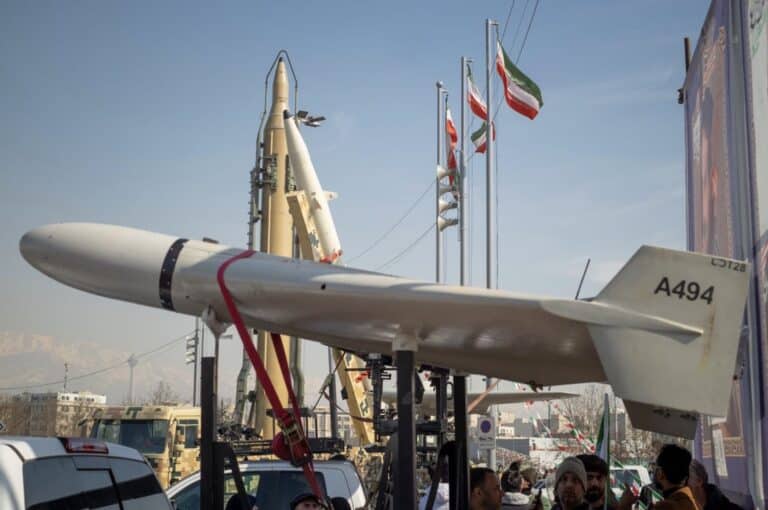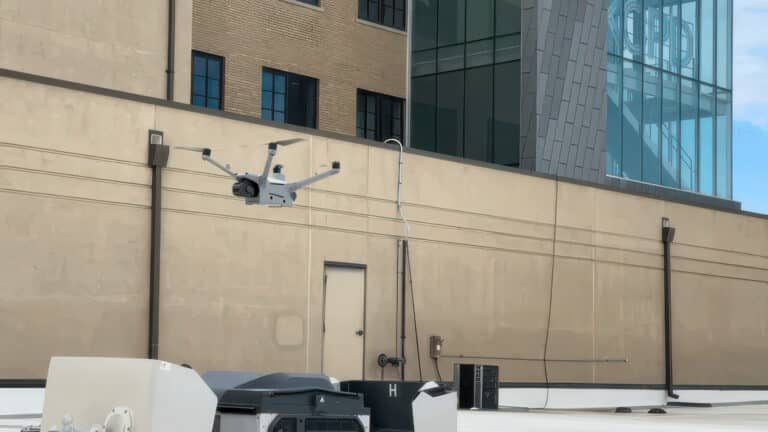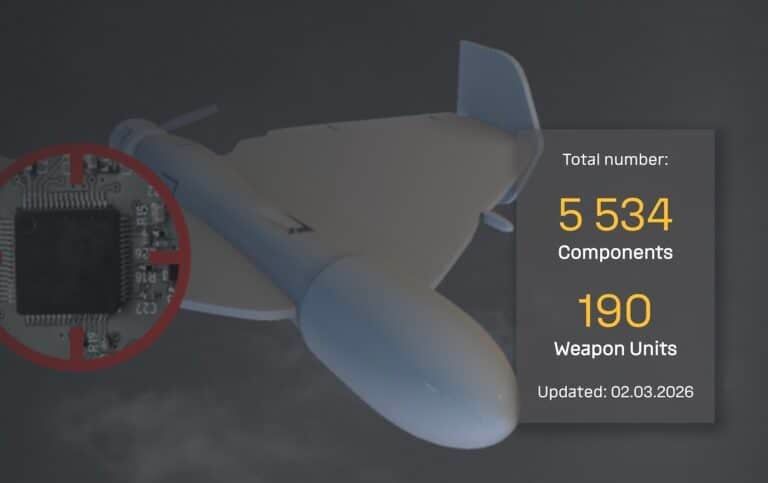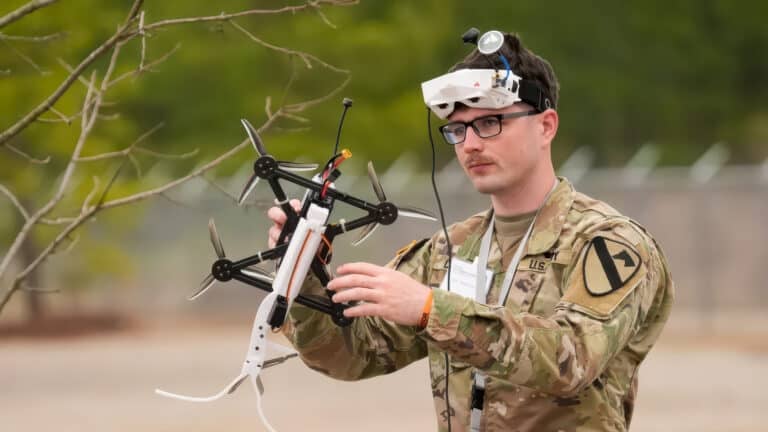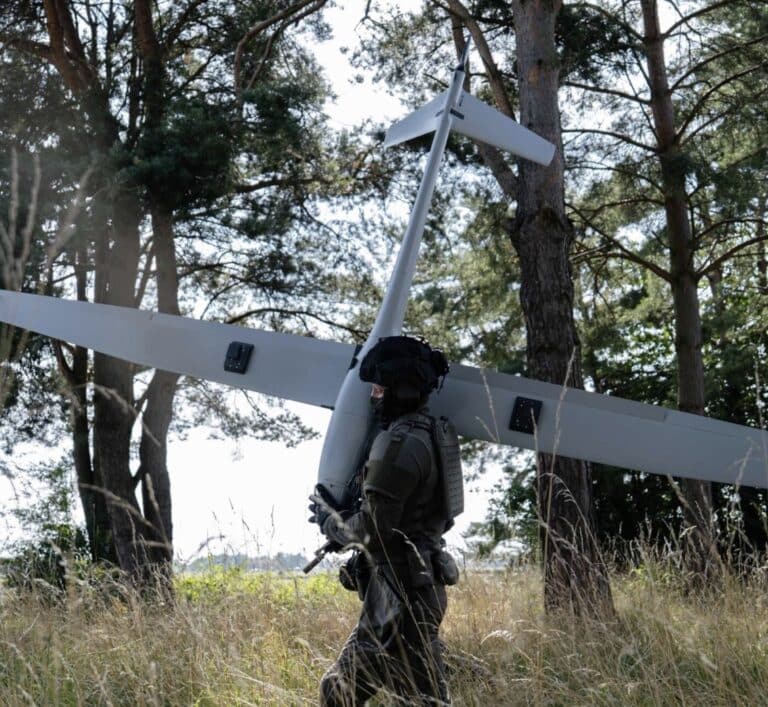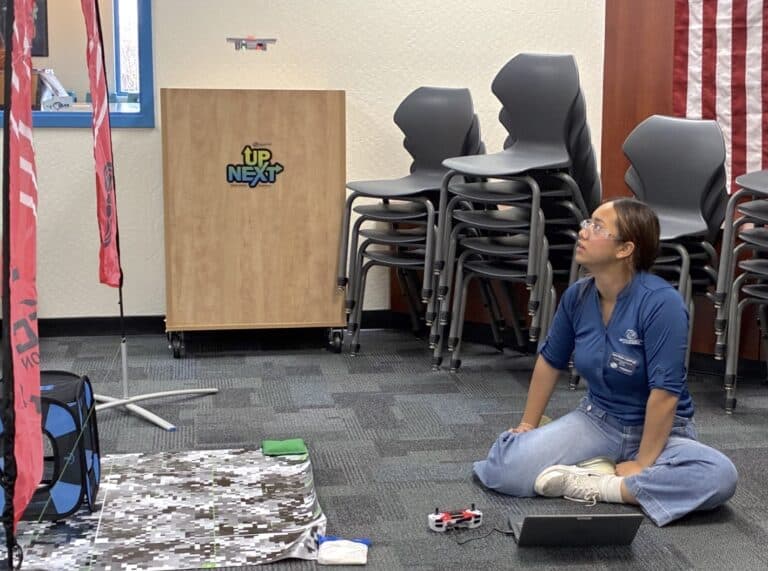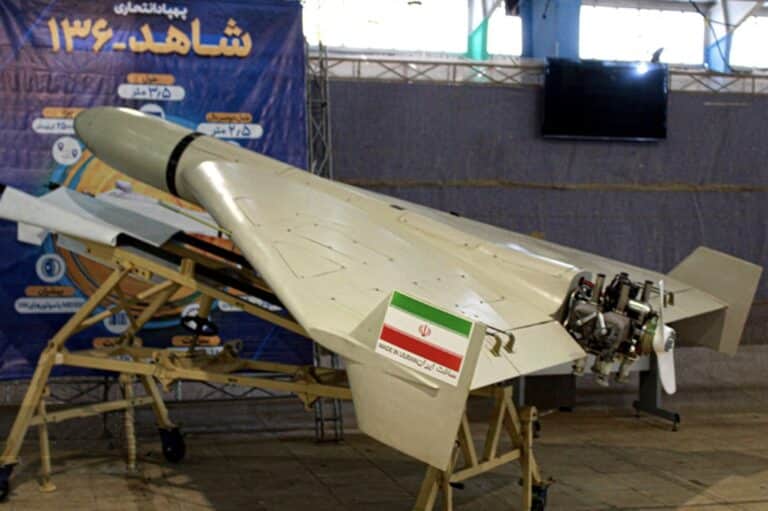Olympic Drone Scandal: Canadian Soccer Coach Reveals Death Threats, Suicidal Thoughts After Career-Ending Flight
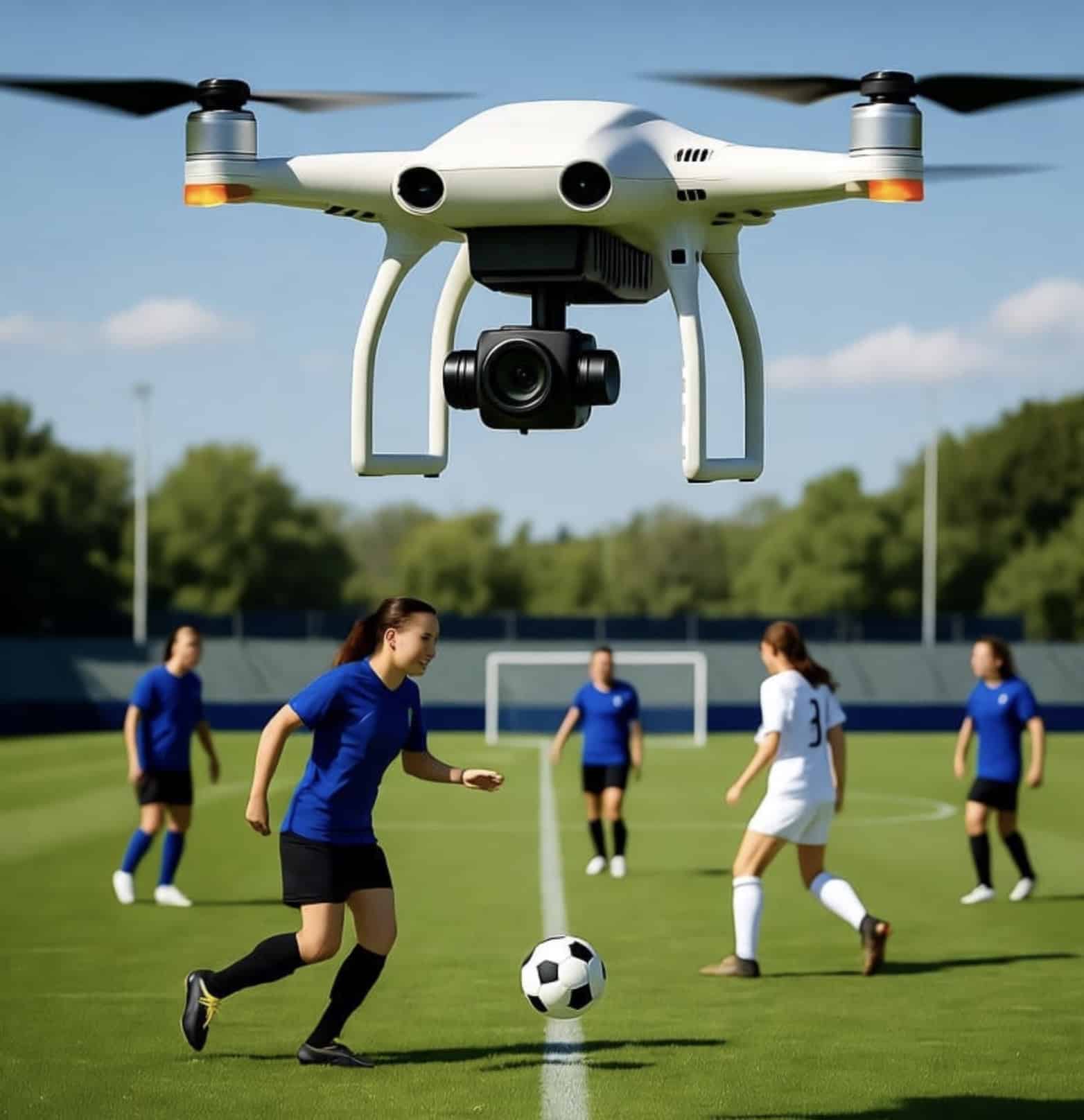
Check out the Best Deals on Amazon for DJI Drones today!
More than a year after a drone flight over a soccer practice ended her career, Jasmine Mander is finally telling her side of the drone scandal. The former Canadian Olympic assistant coach has published a detailed first-person account revealing the devastating personal toll of the Paris 2024 drone scandal that shocked the sports world—and the organizational culture at Canada Soccer that made surveillance of opponents routine.
What emerges is a cautionary tale about drone misuse, French aviation law, and how a single text message turned Mander into what she reportedly calls “Canada’s Most Wanted,” facing death threats, racist abuse, and suicidal thoughts while becoming the public face of a systemic problem involving at least 14 staff members.
The Drone Incident That Changed Everything
It started with a text during a staff meeting in July 2024, just before Canada’s opening Olympic match against New Zealand. “Joey is with the police,” analyst Joey Lombardi messaged Mander. She thought it was a joke.
Lombardi had been away from camp gathering intelligence on New Zealand when French police detained him for flying a drone over the team’s closed practice sessions in Saint-Étienne. According to our previous reporting, Lombardi was caught operating an unmanned aircraft over New Zealand’s training ground on July 20 and 22, 2024—a clear violation of France’s strict Olympic airspace restrictions.
“Did you know where he was?” French police asked Mander during questioning. “No,” she replied. “Did you know he’d be flying a drone? No.” The only reason authorities questioned her was because Lombardi texted her first—they were close colleagues and friends.
But that single text made Mander the contact point for the entire scandal. Within 48 hours, she and Lombardi were sent home from the Olympics. Their names appeared in a public statement before anyone told them directly.
French Drone Laws: Zero Tolerance During Olympics
France implemented unprecedented airspace security for the Paris Olympics. According to the European Union Aviation Safety Agency, authorities completely closed the airspace within a 150-kilometer (93-mile) radius around Paris during the opening ceremony.
French security forces intercepted an average of six drones per day during the Games, with 53 total drones stopped by law enforcement. Prime Minister Gabriel Attal emphasized the strict enforcement: “Systems are in place to allow us to very quickly intercept drones and arrest their operators. We can’t allow anything to slip past us.”
As DroneXL reported, France deployed 18,000 troops to secure Olympic sites, with 15 heavy anti-drone units capable of neutralizing aircraft from several miles away. Officers carried anti-drone rifles designed to scramble radio signals or take down threats by laser.
Lombardi pleaded guilty to “flying an unmanned aircraft over a prohibited area” and received an eight-month suspended prison sentence plus a fine of approximately $49,000 (€45,000).
The Systemic Culture Behind the Drone Scandal
In her account, Mander admits she knew Canada Soccer attempted to watch other teams train—and did nothing to stop it. “I messed up. I really did. I should have said something. Spoken up. Rocked the boat,” she writes.
But she also reveals why she stayed silent: “When I started in the professional game three years prior, I slowly realized that watching the training sessions of your opponents was actually quite normal.” In the Players’ Tribune article, she describes a culture where various methods were used globally—media teams opening gantries for analysts, hotel rooms overlooking training grounds, staff lingering in tunnels.
Canada Soccer-commissioned independent investigation confirmed Mander’s account. Toronto lawyer Sonia Regenbogen found that “the practice of conducting surreptitious surveillance of opponents” predated the Paris Games and was symptomatic of a “difficult and unacceptable past culture.”
TSN reporting, Canada Soccer CEO Kevin Blue acknowledged that 14 staff members were disciplined in the wake of the scandal—far more than just the three whose names became public.
The investigation traced the practice back to at least 2019, when a drone allegedly recorded a U.S. training session before a game in Florida. During World Cup qualifiers, Honduras halted a training session in Toronto after spotting a drone overhead. Sources told DroneXL that at the 2021 Tokyo Olympics, where Canada won gold, “In Tokyo, a lot of the facilities were a little bit more open so in some cases, you could see from behind bushes or behind fences or behind trees.”
The Devastating Personal Toll
What happened next nearly destroyed Mander. Within hours of the public statement, her Instagram flooded with hundreds of comments: “Cheater.” “Disgrace!!” “GO BACK TO YOUR COUNTRY.” “Go kill yourself.”
She became a ghost in her own life—scrolling, saying nothing, barely eating. “I just wanted to sleep to make the days go by faster,” she writes. Her family checked on her in the middle of the night to make sure she was alive.
During a mandatory psychological evaluation, Mander reportedly checked the box indicating she SOMETIMES had suicidal thoughts. “I don’t really think I had thoughts like that, but I can see how somebody gets to that point,” she reflects.
Reporters showed up at her house. They contacted her neighbors, teachers, and college soccer teammates from a decade ago. The questions were invasive: “Did she come from an abusive home? What was she like when she was out with her friends?”
The racist abuse particularly stung. “I didn’t expect to be called the N-word,” Mander writes. “I’m not really someone who has ever felt her race, even as a young woman in sports, but this all felt different.”
Her father, a taxi driver who used to proudly tell passengers, “You know my daughter, Jasmine Mander, she’s an assistant coach at the Canadian soccer team,” stopped mentioning his daughter in the cab. “There was nothing left for him to talk about,” Mander writes. “That broke my heart.”
Penalties That Ended Three Careers
FIFA moved swiftly with severe sanctions. The Canadian women’s team was deducted six points at the Olympics and fined 200,000 Swiss francs (approximately $312,000 USD). Despite the penalty, defending champion Canada still reached the quarterfinals before losing to Germany in a penalty shootout.
Head coach Bev Priestman, Mander, and Lombardi each received one-year suspensions from all football activities. Canada Soccer announced that all three would not be returning to the organization. Lombardi resigned shortly after the Olympics, while Priestman and Mander were eventually fired after their FIFA bans.
Mander questions the selective accountability: “When 14 people are disciplined, and only three of us are named and shamed in public? That’s still very hard for me to accept.” She emphasizes that media reports incorrectly stated Lombardi reported directly to her—in fact, both reported to the head coach, who reported to the CEO.
Broader Implications: Drones and Sports Surveillance
The Canada scandal highlights a growing global issue: drones giving unfair competitive advantages in sports. A very similar controversy has plagued UK horse racing for years.
According to British racing authorities, drone operators livestream races to betting syndicates, providing footage approximately two seconds faster than official broadcasts. This tiny time advantage allows gamblers to place in-running bets with significantly better odds of winning.
One operator, Mick McCool, was even profiled by Wired magazine for his brazen operations. He and accomplices were charged with flying in a congested area at Chelmsford racecourse, but a judge later dropped the charges, calling them a “misinterpretation of the law.” The judge even ordered police to reimburse McCool for legal fees.
The issue reached the UK House of Lords in 2021, with Viscount Astor arguing the practice constitutes “foul play” that harms media rights holders and fuels illegal gambling. Yet no effective ban has been implemented because the practice exists in a legal gray area—not explicitly illegal unless operators violate Civil Aviation Authority airspace rules.
In Worcester, England, residents protested groups of drone pilots taking over public parks on race days to film nearby tracks. When locals asked them to leave, the pilots became aggressive. Despite police intervention, authorities lacked the power to stop them because livestreaming races to betting rings wasn’t technically illegal.
Mander’s Path Forward
More than a year later, Mander is slowly rebuilding. A turning point came when her cousin told her bluntly: “Jas… You’re not Jennifer Lopez.” She needed that reality check.
During one of her first walks after returning home, a driver pulled up beside her. She panicked, expecting confrontation. Instead, he said: “Hey, sorry to bother you, but I just wanted to say that I hope you’re doing OK. You coached my daughter many years ago, and she absolutely loved you. So I just wanted to say thank you for that. And that we’re behind you all the way.”
That moment helped her realize: “If I don’t get myself back out there, I’ll miss out on all the good parts, too.”
According to the Players’ Tribune, Mander closes her account with both an apology and a realistic assessment: “Yes, I made mistakes. Yes, I should have done so much better. If you still think I was an idiot at the Olympics, you’re probably right. Just understand that I was part of an organization, and that I simply tried to do my best. I know that it wasn’t good enough.”
She wonders if she’ll ever make a true first impression again, but holds out hope for writing more chapters in her career. “Honestly, it has felt like breaking up with 40 million people at once,” she writes. “I love Canada. I loved working with our national team. I’m sorry.”
DroneXL’s Take
Jasmine Mander’s account is essential reading for anyone in the drone community—and it should be required for every drone pilot.
Her story reveals three critical lessons. First, the human cost of drone violations extends far beyond fines and legal penalties. One illegal flight didn’t just end three careers—it triggered a mental health crisis, destroyed family dynamics, and subjected a young woman to death threats and racist harassment. When we talk about “responsible drone use,” these are the real-world consequences of getting it wrong.
Second, organizational culture matters enormously. Mander describes a world where surveillance of opponents became normalized—where junior staff felt they couldn’t say no to unethical requests. She’s right that 14 people being disciplined while only three faces public shame represents selective accountability. But her admission that she knew it was wrong and stayed silent anyway is brutally honest. The drone community faces similar pressures around gray areas in our regulations. Her story should make us ask: What practices are we normalizing that we’ll regret later?
Third, France’s zero-tolerance approach during the Olympics demonstrated how seriously governments take airspace security during major events. Six drones per day intercepted. Advanced anti-drone systems with laser capabilities. An eight-month suspended sentence plus $49,000 in fines for one flight. Drone pilots who think, “It’s just for a moment” or “Nobody will notice” need to understand: In restricted airspace, you will be caught, and consequences will be severe.
As we reported when this scandal first broke, the incident exposes how drone technology can undermine the fundamental spirit of fair competition. The UK horse racing situation proves this isn’t isolated to Olympic soccer—wherever there’s money and competition, someone will be tempted to use drones for an unfair edge.
The parallel between Olympic spying and betting rings using drones at racetracks is striking. Both involve exploiting technology for competitive advantage, both operate in legal gray areas, and both have proven remarkably difficult to stop. The difference? In France during the Olympics, laws were clear and enforcement was absolute. In UK horse racing, operators like Mick McCool continue flying because the legal framework hasn’t caught up to the technology.
This case reminds us that drone regulations aren’t abstract bureaucracy—they exist because violations have real consequences for real people. Mander paid an enormous price for being part of a culture that normalized surveillance. Her courage in speaking out, taking accountability, and sharing the personal devastation deserves recognition.
For drone operators everywhere: Know the rules. Follow them strictly. And if your organization is asking you to do something that feels wrong, be the person who speaks up—the person Mander wishes she had been.
What do you think? Share your thoughts in the comments below.
Discover more from DroneXL.co
Subscribe to get the latest posts sent to your email.
Check out our Classic Line of T-Shirts, Polos, Hoodies and more in our new store today!

MAKE YOUR VOICE HEARD
Proposed legislation threatens your ability to use drones for fun, work, and safety. The Drone Advocacy Alliance is fighting to ensure your voice is heard in these critical policy discussions.Join us and tell your elected officials to protect your right to fly.
Get your Part 107 Certificate
Pass the Part 107 test and take to the skies with the Pilot Institute. We have helped thousands of people become airplane and commercial drone pilots. Our courses are designed by industry experts to help you pass FAA tests and achieve your dreams.

Copyright © DroneXL.co 2026. All rights reserved. The content, images, and intellectual property on this website are protected by copyright law. Reproduction or distribution of any material without prior written permission from DroneXL.co is strictly prohibited. For permissions and inquiries, please contact us first. DroneXL.co is a proud partner of the Drone Advocacy Alliance. Be sure to check out DroneXL's sister site, EVXL.co, for all the latest news on electric vehicles.
FTC: DroneXL.co is an Amazon Associate and uses affiliate links that can generate income from qualifying purchases. We do not sell, share, rent out, or spam your email.





